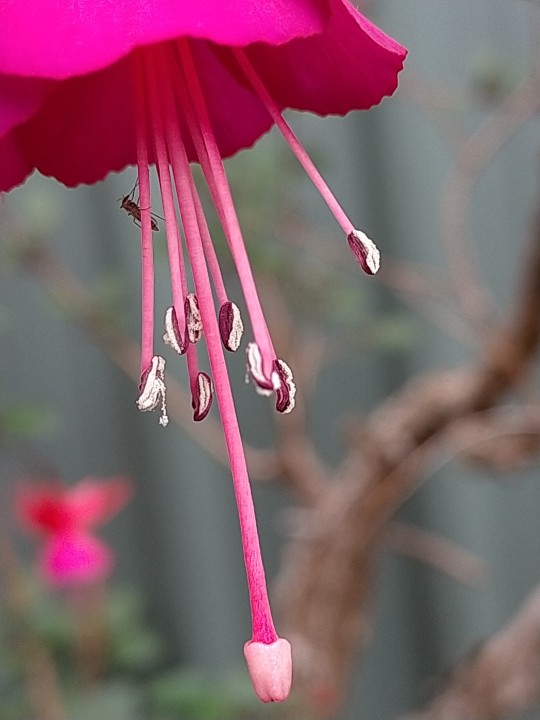#Myrtale
Note
Just saw the cat publication and it came to my attention that Polyxena/ Myrtatle/Olympia/ Stratonike and Hephaistion had similar personalities I need to know more!
I should be more forthright. This is my reading of them, for the novels, as we don’t know a lot about the real Hephaistion, personality-wise.
In Dancing with the Lion: Becoming, part of why Alexandros latches onto Hephaistion so quickly owes to the fact he feels vaguely familiar. I don’t mean that in a creepy way, and specify as much because Oliver Stone has said, in interviews, that he cast Rosario Dawson as Roxana because she resembled Angelina Jolie in certain respects, and he wanted the Oedipal Thing.
I manifestly do NOT, nor do I think it applicable (see this post for an explanation of why).
Even so, we are drawn to people who remind us of those we love (and understand).
My Hephaistion and Myrtalē are both FIERCE in their devotion to those they love. They’re also intense and so, a bit scary. And they both have a jealous bone. Also like Hephaistion, Myrtalē as I envision her got on very well with and cares deeply about her siblings. I think readers can pick up a sense of that between the sisters at least, when Myrtalē is exiled in Epiros in DwtL: Rise.
I also see Myrtalē and Hephaistion as having similar styles of psychological manipulation (of those they perceive to be enemies). That was what I had a little fun with in the short story, “Two Scorpions.” Myrtalē/Olympias goes after him because she sees him as a threat to Alexandros. He tries to fight back, but is essentially dealing with an older, more experienced version of himself. So, we see her drop him to the (virtual) mat a few times. In the end, he “kinda” wins, but only because he walks out before she can get in a retort. LOL The confrontation is written in his POV, but I hope it’s still evident she is (overall) getting the better of him.
In “Two Scorpions,” both act out of love for Alexandros, and what they perceive as the best for him. Myrtalē/Olympias isn’t jealous of nor “hates” Hephaistion. She tells him, quite bluntly, that she didn’t really have much of an opinion about him until he made himself Alexandros’s lover. And she explains why (she perceives) that to be dangerous. She’s brutal, but she’s completely transparent—and knows how to use that honesty to undermine her opponent, just as she has a knack for guessing her opponent’s weak spots. Hephaistion often employs the same tactics. And both pair that with an apparently unflappable façade. But she’s better at it than he is. 😉 Because she’s almost fifteen years older than he is.
Too often, Olympias in literature is portrayed as irrational, vindictive, and jealous. But that’s an ancient Greek male projection of what drives “meddling” women who get above themselves by trying to “do” politics. How dare they?!
I hope that explains why I, at least, see the two as quite similar, at least in the novels. Again, we don’t know enough about the real Hephaistion to say what he was like, although I did build my fictional character on what seemed to me a feasible extrapolation from the source material.
#asks#Hephaistion#Hephaestion#Olympias#Myrtale#Two Scorpions#historical fiction#ancient Greek historical fiction#DwtL
15 notes
·
View notes
Text

Darwinia pinifolia
#darwinia pinifolia#tracheophytes#angiosperms#eudicots#rosids#myrtales#myrtaceae#darwinia#d. pinifolia#flowers#plants#botany#horticulture#wikipedia#wikipedia pictures#nature#wikimedia commons
11 notes
·
View notes
Text

Fuchsia sp. detail
18-MAY-2023
Melbourne, Vic
#australia#victoria#melbourne#flower#pink#pink flower#anther#pollen#rosids#myrtales#onagraceae#onagroideae#circaeeae#fuchsia
12 notes
·
View notes
Text

Crepe-Myrtle (Lagerstroemia indica)
#Crepe-myrtle#Lagerstroemia indica#Myrtales#Lythraceae#Flowers#Flores#Gardening#Beautiful#Nature#Kukkat#Puutarha#Luonto
24 notes
·
View notes
Video
n174_w1150 by Biodiversity Heritage Library
Via Flickr:
Atlas de poche des plantes des champs, des prairies et des bois Paris :P. Klincksieck,[1894] biodiversitylibrary.org/page/11018393
#Botany#Pictorial works#MBLWHOI Library#Woods Hole#bhl:page=11018393#dc:identifier=http://biodiversitylibrary.org/page/11018393#Chamerion angustifolium#Plant#fireweed#North America Plant#rosebay willowherb#Europe Plant#Epilobium#Onagraceae#Myrtales#Rosids#Eudicots#Flowering plant#taxonomy:binomial=Chamerion angustifolium#flickr#willowherbs#willowherb
2 notes
·
View notes
Text
I wanted to say that Olympias was girlbossing before the word even existed, but should I say Polyxena-Myrtale-Olympias-Stratonike was girlbossing before the word even existed.
#fan fact#her name isn't Olympias but Olybiada#queen olympias#mother of#alexander the great#she was also apparently a priestess#ancient greece#history facts
7 notes
·
View notes
Text
RIP Olympias of Macedon
Myrtale would have loved Alicent hightower and Lady Jessica.
#me when mothers who are unhinged for their sons 🥰#Olympias mother of Alexander the great#she is literally Jessica irl#girlbossing before it was cool#part of a secret cult? check#mother of a deified tyrant? check#also so many war crimes#dune#duneposting#jessica atreides#paul atreides#alicent hightower#aegon ii targaryen#hotd#house of the dragon#alexander the great
6 notes
·
View notes
Text
Various scholars have developed explanations for the four names of Olympias [...] This is what seems likely to me. At first she was known as Polyxena, a Trojan name like those of her sister and brother, appropriate choices if their mother was a member of the Chaonian dynasty that claimed descent from the royal house of Troy, yet a name with connections to Neoptolemus as well. At some point before her marriage she acquired the name Myrtale, almost certainly in connection to some religious experience, whether a rite of passage, Samothracian ritual, or some other, as yet unknown, mystery cult. Olympias, the name the sources always employ about her, must date from the early days of her marriage to Philip, most likely to a wedding somehow connected to the festival of Olympian Zeus, although possibly to Philip’s Olympian victory in the following year. Stratonice (‘victory’ in military matters) is probably the last name, more like an epithet, employed in the brief period in 317 between her victory against Adea Eurydice and Philip Arrhidaeus and her own defeat by Cassander.
Sarah Pomeroy raises an interesting question about Olympias’ name changes. How would she herself have felt about them? Pomeroy wonders whether Olympias would have experienced a “loss of identity” or, alternatively, would have seen the changed name as “an affirmation of his [Philip’s] bond with her.” The assumption seems to be that all these changes in name/epithet were imposed upon her by her father (and perhaps her mother, granted the Chaonian connection), uncle, and husband. Whereas “Polyxena” and “Olympias” were likely chosen by others, Olympias could possibly have chosen her other two names herself. She could have selected “Myrtale” herself, as part of a coming-of-age ceremony or as part of her betrothal, in the same way that those about to receive communion for the first time can choose for themselves an additional name. “Stratonice,” probably selected long after the death of Philip, is, of all these names, the one most likely to have been her own decision.
- Elizabeth Carney, “Olympias: Mother of Alexander the Great”
9 notes
·
View notes
Note
Wrapped ask game: 94, 28, 10
94:
28:
10:
3 notes
·
View notes
Text

A year ago, I took a trip to history and I swear it was meant to be. I saw MY pyramids after enduring MY glass shop like Santiago in "The Alchemist" by Paulo Coelho.
I heard a certain song play by my favorite artist for the first time over my, then, jobs radio the day I pondered the question...and then called the reservation line....and then made the reservation "just incase". Where I would end up was quite a leap for a buckeye girl.
Months later I checked it off my dream list. Wandering on to some random mans balcony because I could access it from the main hallway and I didnt know it wasnt public wasn't on my list. Neither was having an indigestion fueled anxiety attack at the hotels brunch on the patio. Not even catching Dua Lipa and her then boyfriend trying to catch the same elevator before I relinquished it to them but I guess we'll check those off too.
When I went to my favorite place, Santa Monica beach, I was the most at peace. It wasn't tourist season. The ocean was vast and gave off a white noise; melodic and deeply marine. It should be declared blue noise. I wanted to go back to the ocean for years since the time I visited Myrtal Beach at 11 and even in my dreams I wasnt allowed to touch the water. The dreams would turn black or dissolve into another scene anytime I'd try. In Santa Monica, I took off my leather sandals, and walked the shifty beach sand to waters edge. I touched the ocean and it nearly took me away! I wasn't an employee. Or a student. Or a scorned daughter. I owed my time to noone. In California, I was just a girl.
On my way up and down the pier, in my green, silk dress, green beanie, and brown sunglasses, someones grandfather hopped up from a picnic table and started singing 'Isnt She Lovely' to me! Ha!
#the alchemist#paulo coelho#california#santa monica#green dress#chateau marmont#blackgirl#ohio#al-live
1 note
·
View note
Photo





Simple y hermoso es el papel tapiz Myrtales ✨· Creado a partir de un diseño en gouache sobre papel de al rededor de la mitad del siglo XIX, @jamesmalonefabrics ha honrado la técnica dando la ilusión de un hermoso papel pintado. Es una novedad de temporada que nos ofrece la distinguida firma española, no debes dudar al incluirla en tus diseños de interiores.
Disponible también en tejidos de lino estampado.
Colores:
- Blue
- Soft
- Coral
- Ochre
- Tinta
- Ash
- Gredos
Exclusivamente a través de Cofer Studio ⚓️
1 note
·
View note
Note
I'm new to reading about Alexander the Great, and I read your books first, then Mary Renault's. I like your Hephaistion a lot better, and Olympias (Myrtale), but the two novels were a lot alike in the story itself. I saw at least one reviewer said that yours was like a retelling of hers: "dangerously similar." So I wondered how much her first novel on Alexander influenced yours?
You’re not the first to ask, and the answer is: very little.
When I get that line about my novel being “too much like” Mary Renault’s, or even “fanfic” on Mary Renault, it tells me the reviewer is completely unfamiliar with the ancient sources themselves. For those who are familiar, I never hear this (perhaps because where we differ is obvious).
Unlike the novelist who makes up a completely original plot, when writing historical fiction, at least of this type, there IS a historical thread to follow. I’m not copying Renault. I’m following Plutarch, Diodorus, and, to a lesser degree, Justin. So is she.
Where we “cross” is on the historical elements in the original sources.
If you remove those bits, our two retellings don’t have much in common. Likewise, even in some of the elements from those sources, we differ in interpretations. My novel also begins a good deal later in ATG’s life. We do both end with the same event—I suspect because, when history gives you a “made for Hollywood” incident like the murder of Philip, you don’t turn it down. LOL. Also, for me, it’s the “natural joint” between Alexander-the-prince and Alexander-the-king. Just as the end of Alexander’s stay at Mieza with Aristotle forms the hinge between the two novels—or originally, the hinge between two halves of one novel. (Which is why I was able to divide it in half, when Riptide insisted that I do so in order to publish it, due to its original length.)
But the plain fact is I’d written my own before I’d ever heard of Mary Renault. I backed into Alexander as a result of some grad classes at Emory. He kept popping up in lecture, and I realized I had NO idea who he was. As an English major, I’d read Shakespeare’s “Antony and Cleopatra,” so I knew the “big” Roman-era names. But I’d managed to get out of both high school and my BA at the University of Florida without taking any (real) history classes. Now I was running into mentions of people (and places) with which I was completely unfamiliar.
So, I waltzed over to the Emory library and picked out two bios on Alexander: Nick Hammond’s Alexander the Great: King, Commander, and Statesman, and Peter Green’s Alexander of Macedon (the original version, with pictures…I picked it because it had pictures). As I’ve said elsewhere, I couldn’t have selected two more different views of the conqueror if I’d tried. And that’s what intrigued me…so I kept reading. Then I decided to write a novel about the “making” of him (coming-of-age), and the importance of Hephaistion in his life (because Green was so dismissive of the poor guy). Hephaistion was originally much clearer in my mind. In fact, he’s the (real) protagonist of Dancing with the Lion…certainly for the novel’s first half (Becoming). So I’m glad to hear you liked how I portrayed him.
It was only later that somebody said, “Oh, hey, have you heard of Mary Renault?” English major or no, I hadn’t. I did pick up her novels on Alexander but read only a little way before putting them down precisely because I didn’t want to be influenced by her work. In fact, I read nobody’s novels on him until I finished my original (way too short) rendition. Then I started on the second draft (which turned out to be way too long).
But by that point, my picture of Alexander, and even more so, Hephaistion, was quite set. As was the story I wanted to tell.
So no, Mary Renault’s novels had little impact on the genesis of Dancing with the Lion. But you are not the first person to wonder.
Ironically, Mary Stewart’s Crystal Cave and her subsequent Arthurian Saga had a much greater impact on how I chose to tell Alexander’s story. I did read those as a teen girl, and they fomented a fascination for King Arthur in me that lasted into college. The fact I wound up getting a PhD in Greek history is ironic, as I actively avoided it in high school and (undergrad) college, all my love given to Celtic and Scandinavian myth and history. I still do enjoy Celtic myth, btw. And it was with some amusement that I realized the tale of Alexander and Hephaistion was the foundation for the legend of Arthur and Lancelot. That probably IS part of why Alexander and Hephaistion gripped me so.
So yes, a “Mary” did influence me, but Stewart, not Renault. 😊
#asks#Alexander the Great#Hephaistion#Hephaestion#Mary Renault#Mary Stewart#historical fiction#Classics#tagamemnon#alexander x hephaestion#alexander x hephaistion#ancient sources on Alexander the Great
23 notes
·
View notes
Photo

Monkey Brush Vine
Combretum rotundifolium
#combretum rotundifolium#combretum#monkey brush vine#monkey brush#plant#plantae#cool#red#weird#angiosperm#eudicot#rosid#myrtale#combretaceae#botany#nature
38 notes
·
View notes
Text

Corymbia ficifolia cv. with honeybee
01-FEB-2023
Melbourne, Vic
#australia#victoria#melbourne#flowers#australian natives#native flowers#orange#orange flowers#flowering gum#rosids#myrtales#myrtaceae#corymbia#corymbia ficifolia#arthropod#insect#bug#invertebrates#bee#honeybee#arthropoda#insecta#hymenoptera#apidae#corbiculata#apini#apis
4 notes
·
View notes
Text

oh no, it’s him…
#pokemon arceus#pokemon legends melli#pokemon legends adaman#pokemon legends arceus#myrtales#myart#fanart#anime#pokemon#cartoony
64 notes
·
View notes
Text



7/30/22
2 notes
·
View notes